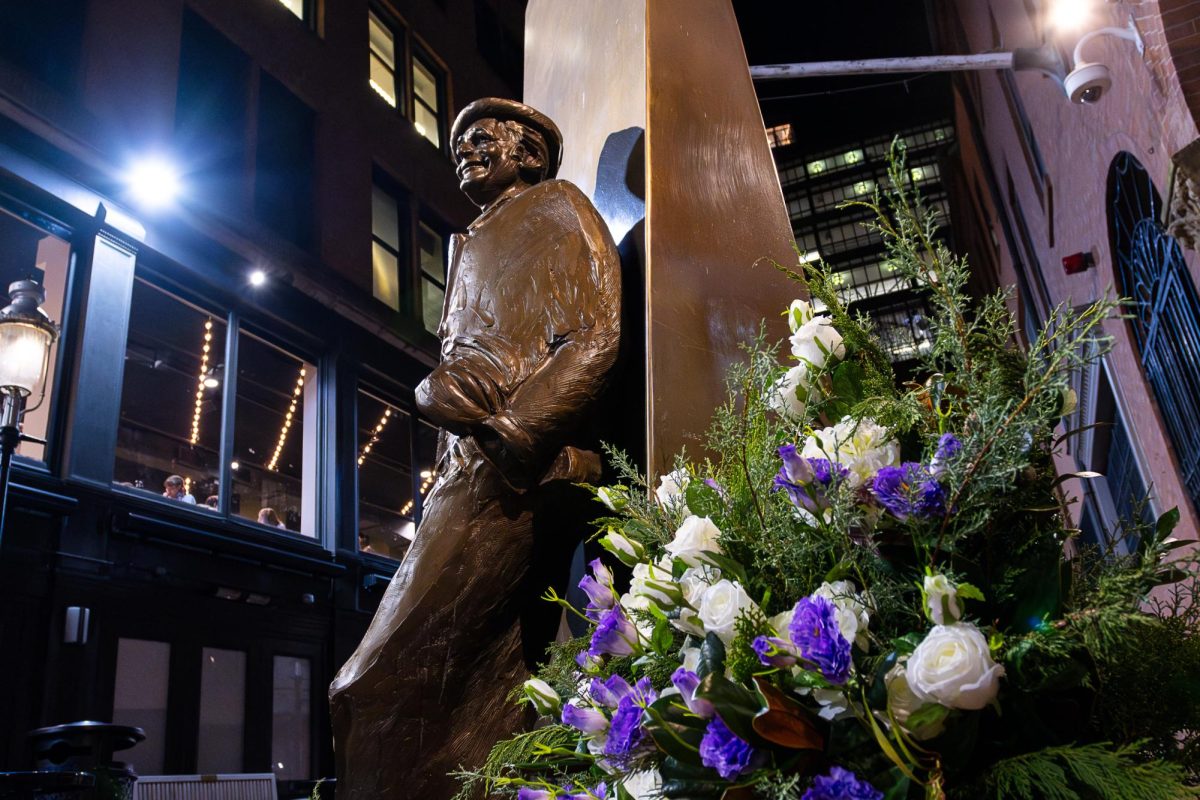Norman Lear ‘44, the television writer and producer who revolutionized American sitcoms by addressing political and social issues, died on Dec. 5. He was 101.
“Norman lived a life in awe of the world around him. He marveled at his cup of coffee every morning, the shape of the tree outside his window, and the sounds of beautiful music,” his family, who was with him in his Los Angeles home when he passed, wrote in an Instagram post. “But it was people—those he just met and those he knew for decades—who kept his mind and heart forever young.”
Lear, throughout his six-decade career, used comedy to connect with real-world issues, highlighting families who dealt with poverty, racism, and prejudices.
A Hartford, Connecticut native, Lear attended Emerson in 1940 on a scholarship he earned in an American Legion oratory competition. His speech, entitled “The Constitution and Me,” gave a glimpse into his future work with inclusivity.
“The reason for that title was I was Jewish, and I had learned there were people who hated people because of their religion … I wondered if the Constitution wasn’t a little more precious to me than someone who didn’t need its protection,” Lear told Emerson Today in a 2016 interview.
Although he left the college in 1942 to join the United States Army Air Force during World War II, Lear continuously embraced the Emerson spirit of telling stories that broke barriers. He received an Honorary Degree from Emerson in 1968.

In 2018, he started an Emerson scholarship in his name for exceptional students from first-generation, underrepresented, and underserved backgrounds interested in pursuing a career in writing for theatre, television, film, or other genres. In October of that year, he visited Emerson’s Boston campus one last time for, what the City of Boston declared as, “Norman Lear Day,” when the college unveiled a sculpture of him located in the Boylston Place alley.
“I never stopped being in love with Emerson College,” he said during the event.
Lear was behind numerous award-winning and groundbreaking shows, including “All in the Family,” “Maude,” and “The Jeffersons.”
“Norman Lear personified what Emersonians strive to do—change the world through our stories and our voices. And he did it so very well over more than six decades,” President Jay Bernhardt said in an email sent to the Emerson community.
In 2014, Lear published his memoir, “Even This I Get to Experience.” Then in 2016, he was the subject of a documentary, “Norman Lear: Just Another Version of You,” produced by fellow Emerson alum JD Marlow ’08.
Lear is survived by his wife, Lyn, and six children: Ellen, Kate, Maggie, Benjamin, and twins Madelaine and Brianna.